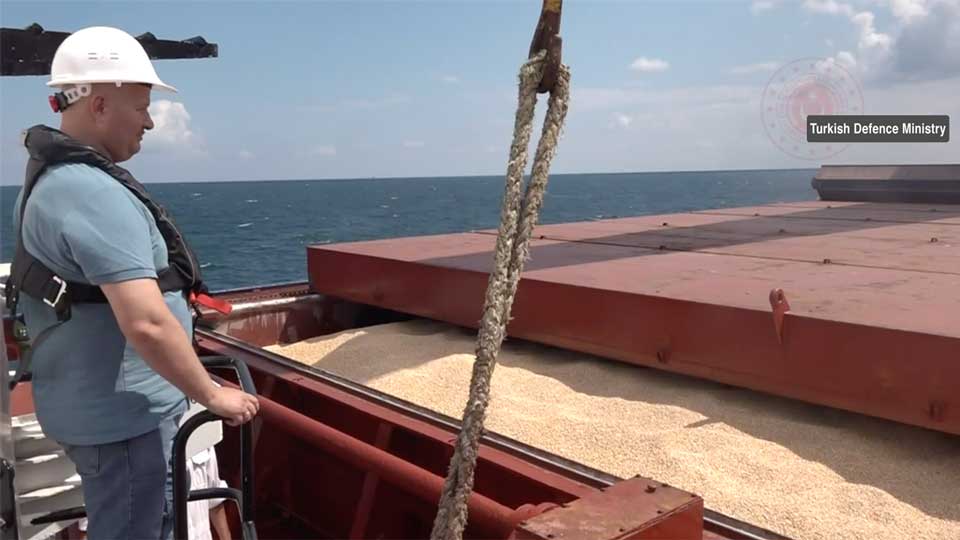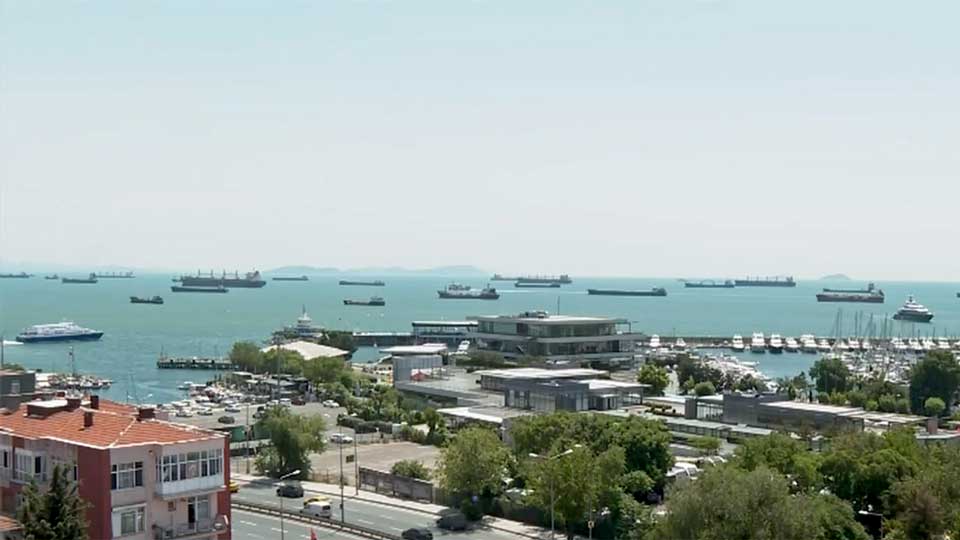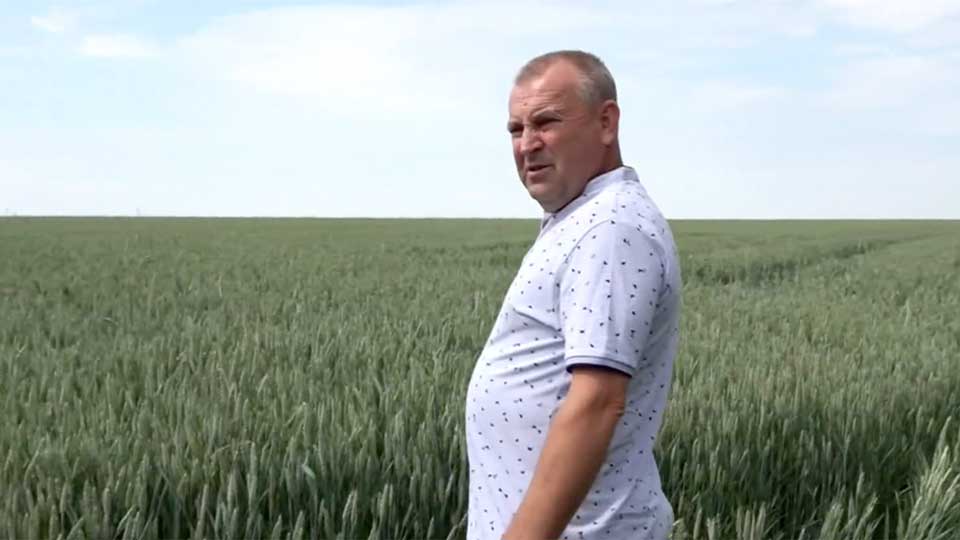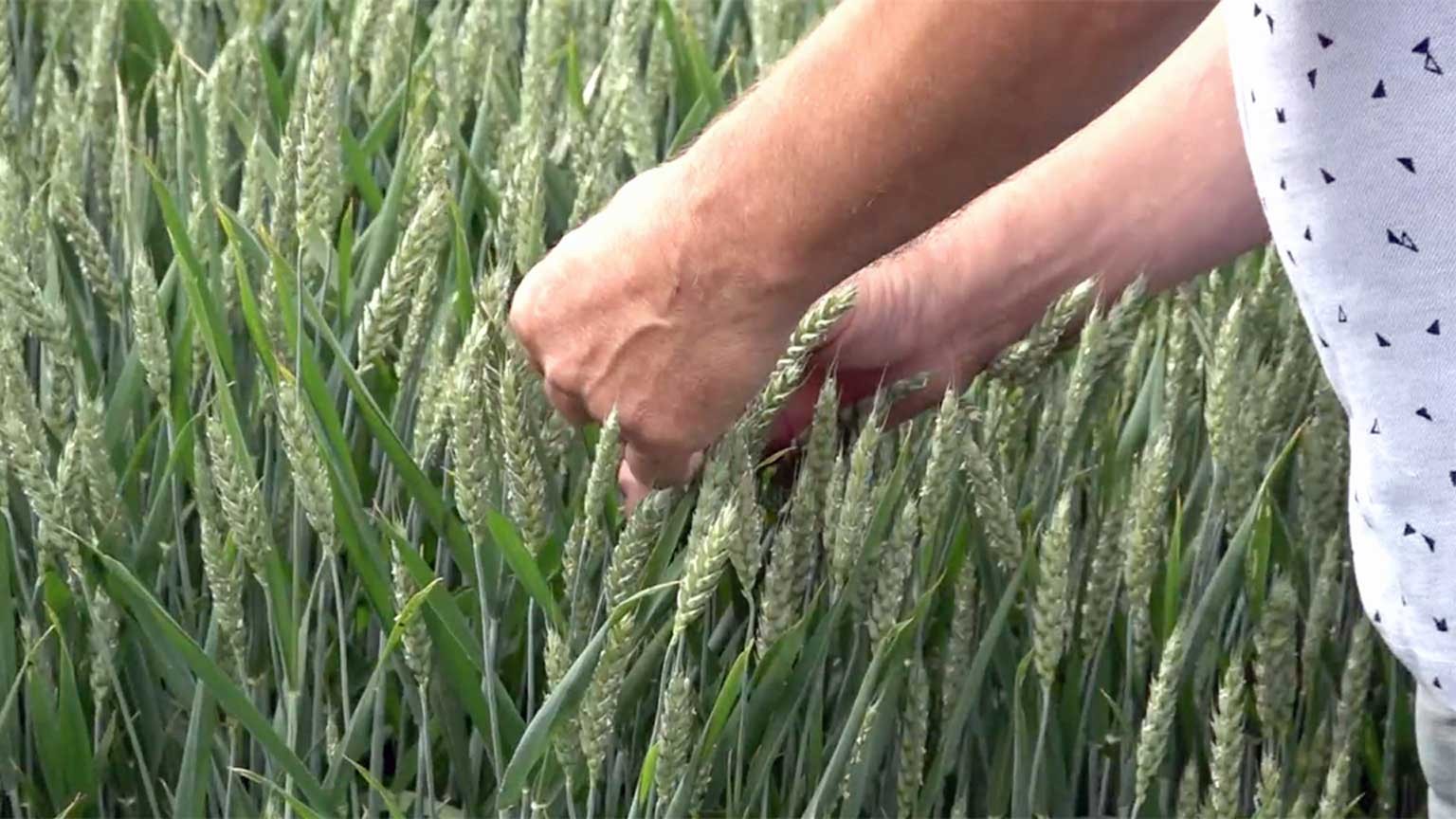Ukraine and Russia signed the grain initiative on July 22 last year, brokered by Turkey and the United Nations. The Joint Coordination Centre in Istanbul, which has overseen the scheme, said a total of 993 ships have exported more than 32 million tons of agricultural products as of Monday.
However, last month's total was only 1.3 million tons, about 30 percent of the peak level and the lowest since exports resumed. The pace of exports in June has remained relatively slow, with about 1.86 million tons shipped as of Monday.
Ukraine has accused Russia of intentionally delaying cargo inspections in Istanbul, and has claimed that many ships remain offshore.

In response, Moscow said that while Ukraine's grain exports are guaranteed, exports of Russia's agricultural products and fertilizers are stalled.
Russian President Vladimir Putin said on June 13 that his country was thinking "about terminating our participation" in the grain deal.
Putin also said while keeping in check the US and European countries that impose sanctions on the country, Russia had failed to benefit from the grain export agreement.
"Unfortunately, we were cheated once again — nothing was done to facilitate our grain supplies to external markets," he said.

Ukraine's farmers worry amid uncertainty
Ukraine, a major global grain exporter, will soon start this year's wheat harvest.
Serhii Shevchuk is a farmer in the central region of Uman. He has grown wheat and other grains for more than 20 years.
Before Russia invaded his country, wheat he had harvested the previous year end would normally ship by March. But this year, about 500 tons, or nearly half of his harvest last year, remain in his warehouse even now.
Meanwhile, he is preparing to harvest this year's wheat from a vast field of about 200 hectares.
Shevchuk said he reduced his planting area by 10 percent this season and will harvest about 1,000 tons, more than 200 tons less than usual. But he is still worried about whether he can safely ship all the wheat.
"It is still very difficult to sell grain, just as it was last year," he said. "The situation is serious as export routes have been closed and grain can't reach people."

Other Ukrainian industries at risk
A logistics company owner in Odesa expressed a sense of crisis that the grain deal extension could be in jeopardy.
Andrey Stavnitser's company is based at a port in Odesa Oblast. Before Russia invaded, he handled 45 million tons of grain and other exports every year.
But after the invasion, the amount shrank to half last year. Stavnitser said he has been unable to export anything since May.
He used to employ 5,000 workers but was forced to lay off about 2,000 of them after the invasion.
His company called back some of its employees after exports resumed. But Stavnitser said he now faces difficulties again with exports stalled since last month.
Stavnitser said that the only way to improve the situation would be to strengthen the roles of Turkey and the UN to become real mediators, rather than just a formality.
"Ukraine's industry will continue to decline unless a system is created to enforce that Russia complies with the agreement," he said.

UN chief calls for continuation of the agreement
UN Secretary-General Antonio Guterres said in a statement last week that he was disappointed at the exclusion of a port near Odesa from the Black Sea Initiative. The statement says the situation leads to a drop in the supply of food to global markets.
Guterres calls on the parties to accelerate operations and urges them to do their utmost to ensure the continuation of this vital agreement, which is up for renewal on July 17.

